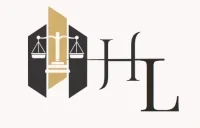On 12.09.2024, the Hon’ble Supreme Court in the case of Rohan Builders (India) Private Limited v. Berger Paints India Limited (SLP(C) No. 23320 of 2023) clarified an important question that previously had dilemmas among various lower courts with contradictory opinions across different High Courts. The primary issue was whether an application for an extension of time under Section 29A (5) of the Arbitration and Conciliation Act, 1996 (hereinafter “the Act”) can be filed after the expiry of the period for passing the arbitral award as mandated under Sections 29A (1) & (3).

To put it in a nutshell, the Apex Court answered this question affirmatively, making it clear to all stakeholders in arbitration that an application for an extension of time can be filed even after the time limit for passing the award, as stipulated under Sections 29A (1) & (3), has expired.
In our previous article, we discussed how implied consent constitutes automatic concurrence, enabling the arbitral tribunal to extend its time limit under Section 29A (3) of the Act. Please click the link to read more about this case summary.
In this case summary, we will summarize the above case law and analyze how the Supreme Court answered the aforesaid question.
Where can this judgment be used:
This judgment can be used in cases involving:
- Applications for an extension of time under Section 29A (5) of the Act for making arbitral awards
- Interpretation of Section 29A of the Arbitration and Conciliation Act, 1996
- Disputes regarding the termination of the arbitral tribunal’s mandate
- Issues related to the timeline for completing arbitration proceedings
Background of this issue:
To answer the aforementioned question, it is necessary to first understand the issue at hand. To put it simply, the issue is summarized as follows:
- Prior to the Arbitration and Conciliation (Amendment) Act, 2015, no time limit was prescribed for passing an arbitral award, leading to prolonged delays, which defeated the legislative intent. However, post-amendment, a time frame of 12 months was introduced for the completion of the arbitral award (Refer to Sub-Section (1) of 29A).
- This time limit starts from the date of reference to an arbitrator, which was later changed to “the date of completion of pleadings” by the Amendment Act 33 of 2019.
- The 12-month time limit can be extended for another 6 months if the parties mutually agree to the extension. In simple terms, the arbitral tribunal should pass an award within 12 months, which may be extended by 6 months, subject to mutual consent (Refer to Sub-Section (2) of 29A).
- Non-adherence to this time limit will result in the termination of the arbitral tribunal’s mandate (Refer to Sub-Section (4) of 29A).
- However, the time limits (12 + 6 months) may be further extended by the courts upon an application for an extension. (Refer to Sub-Section (5) of 29A). The tribunal’s mandate will terminate unless the courts extend the period.
The primary question was whether an application for an extension of time must be filed before the expiry of the period. Or, can the application be filed even after the period stipulated for passing the arbitral award, i.e., after 12 + 6 months? This is the question the Supreme Court attempted to clarify.
High Courts’ attempts to answer the above question:
The question lacked uniformity across various High Courts, leading to divergent views, as follows:
Liberal Approach:
Several High Courts adopted a liberal approach, ruling in favor of applicants who filed their applications after the stipulated period had expired. The courts and cases include:
- The High Court of Delhi: ATC Telecom Infrastructure Pvt. Ltd. v. Bharat Sanchar Nigam Ltd. (2023) and Wadia Techno-Engineering Services Limited v. Director General of Married Accommodation Project and Another (2023).
- The High Court of Judicature at Bombay: Nikhil H. Malkan and Others v. Standard Chartered Investment and Loans (India) Limited (2023).
- These judgments held that an application for an extension of time could be filed even after the expiry of the mandated period, emphasizing a practical interpretation that would not defeat the purpose of arbitration. The High Courts of Kerala, Madras, Jammu & Kashmir, and Ladakh also took a similar approach, emphasizing the need to facilitate rather than hinder arbitration proceedings.
Strict Interpretation and Contradictory Approach:
- The High Court of Judicature at Patna, in South Bihar Power Distribution Company Limited v. Bhagalpur Electricity Distribution Company Private Limited (2023), took a contrary view. It held that once the mandate of the arbitral tribunal is terminated by the passage of time, the court’s power to extend time under Section 29A (4) cannot be invoked.
- The High Court of Calcutta, in Rohan Builders (India) Pvt. Ltd. v. Berger Paints India Limited (the present appeal), took a similar view as the Patna High Court, denying the parties the ability to approach the courts after the expiry of the mandated period.
Analysis of Caalcutta High Courts’ Views:
The Calcutta High Court, from which the present appeal arose, denied benefits to the applicants, arguing as follows:
- The High Court interpreted the term “terminate” used in Sub-section (4) of Section 29A, presuming that the use of “terminate” instead of “suspend” indicated a legislative intent to end the tribunal’s mandate upon expiry.
- From this analysis, the High Court inferred that the power to extend time after the expiration of the mandated period could not be invoked.
Supreme Court’s Analysis Against the Above Judgment:
The Supreme Court found this interpretation overly restrictive and potentially detrimental to arbitration. It overturned the Calcutta High Court judgment, allowing parties to apply for an extension even after the stipulated period had expired. The Supreme Court conducted an extensive analysis of Section 29A and its legislative intent, emphasizing efficiency in arbitration proceedings.
The Supreme Court’s analysis can be summarized as follows:
- Contextual Interpretation: The term “terminate” in Section 29A (4) should be interpreted in the context of the entire provision, not in isolation. The word “unless” following “terminate” qualifies the termination.
- Legislative Intent: The legislative intent behind Section 29A was to ensure the timely completion of arbitration, with flexibility in genuine cases. A strict interpretation would contradict this intent.
- Practical Implications: A restrictive interpretation would force parties to rush to court before the initial twelve-month period expired, leading to unnecessary litigation.
- Safeguards Against Abuse: The requirement of “sufficient cause” for granting extensions and the court’s power to impose terms are adequate safeguards against abuse.
- Holistic Reading of Section 29A: Subsections (6) and (7) allow for continuation even after the substitution of arbitrators, showing a legislative preference for continuation over termination.
- Avoidance of Judicial Legislation: The court warned against imposing a limitation period where none exists in the statute, as that would amount to judicial legislation.
In conclusion, the Supreme Court’s nuanced and flexible interpretation facilitates arbitration while maintaining necessary safeguards, overruling the restrictive approach of the Calcutta High Court.
FAQs on this Judgment:
Q. What happens when legislation does not provide a definite limitation?
A. In North Eastern Chemicals Industries, the Supreme Court held that when no limitation period is prescribed in a statute, courts should not impose one. This principle was applied to reject a narrow interpretation of Section 29A that would have created an implied limitation period.
Q. Can a court change the arbitrator in Section 29A applications without invoking Section 11?
A. Yes, under Sub-Sections (6) and (7) of Section 29A, courts can appoint new arbitrators, who will continue the proceedings without starting afresh, promoting efficiency.
Q. What is the time limit for courts to decide on applications under Section 29A (5)?
A. The suggested time limit is sixty days from the date of notice served on the opposite party, making Section 29A applications effective and efficient.
Please do subscribe to our newsletter!!
Read our recent summaries:
- Supreme Court Quashes Criminal Proceedings After One Time Settlement: Key Takeaways for Banking Fraud CasesSupreme Court quashes criminal proceedings in N.S. Gnaneshwaran case after One Time Settlement between parties, emphasizing no continuing public interest warrants prosecution continuation.
- Supreme Court Clarifies Whether an Application for Extension Under Section 29A(5) Can Be Filed After the Expiry of Time for Passing an Award.This article discusses the Supreme Court’s clarification on Section 29A(5) of the Arbitration and Conciliation Act, addressing whether an application for extending the time limit to pass an arbitral award can be filed after the expiry of the prescribed period. Learn how the court’s ruling affects arbitration timelines and tribunal mandates
- An Analysis of Implied Consent in Arbitration Proceedings Continuing Beyond 12 Months: A Brief Examination in Light of the Madras High Court’s Recent 2024 Judgment.Explore the concept of implied consent in arbitration proceedings under Section 29-A of the Arbitration and Conciliation Act, focusing on the recent 2024 Madras High Court judgment in Ayyasamy vs. Shanmugavel. Understand the implications of continuing arbitration beyond the 12-month statutory limit.
- Supreme Court Observations on Cancellation or Stay of Bail: 2024The Supreme Court of India issued mandates to lower courts on staying bail orders in the Parvinder Singh Khurana case. Learn about the judgment balancing personal liberty and judicial procedure in bail cancellation cases.
- The Appellate Tribunal under PMLA does not have the power to release properties attached under Money Laundering Case:2024.Read the recent Appellate Tribunal’s ruling which examines its jurisdiction to release attached property under money laundering crimes. This case helps readers understand the powers conferred upon the Appellate Tribunal under the PMLA, 2002, specifically in terms of Sections 8 and 35 of the PMLA, 2002.

Leave a Reply